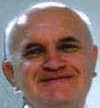Articles in the Articles Category

IFEN was the first company in Europe to work on ground based integrity monitoring. Starting out with research and development in 1999 for regional augmentation system EGNOS V1, IFEN is currently providing maintenance to the current SoL certified EGNOS V2 for the integrity check. Furthermore, IFEN will continue to make major contributions to the ongoing definition of the next generation EGNOS V3.

Despite the good performance of GPS, there are more than a few GNSS vulnerabilities and threats. Categorisation into unintentional and intentional is sometimes done to aid understanding. Unintentional disruptions include natural phenomena such as high levels of ionospheric disturbance and solar flares, as well as man-made phenomena including system errors (satellite or signal), and unwanted radio frequency transmissions (TV, microwave communications, radar, …).

Replacing the horizontal datum of a country is a complicated and difficult project. The decision to embark on such a “revolutionary” move should only be taken after in-depth studies to identify compelling reasons for such replacement. Here, we comment on the article by Tahir et al. published in the September 2011 issue of Coordinates.
April 2012
6th International Satellite Navigation Forum, 17-18 April, 2012,
Moscow, Russia, https://mycoordinates.org/the-6thinternational-satellite-navigation-forum/;
Interexpo Geo-Siberia, 17-19 April, 2012,
Novosibirsk, Russia, http://itcsib.ru/event/4-INTEREKSPO_GEO-SIBIR;

For the purposes of this paper, the vehicle was tele-operated from the nearby BS with the operator manoeuvring with the aid of three onboard video cameras and a display of the LiDAR data in realtime. Autonomous operation using the LiDAR data and was demonstrated in Whitty et al. (2010)(For videos, see our YouTube channel: www. youtube.com/UNSWMechatronics).

Obviously, before any datasets can be compared or combined, they must be brought together onto the same datum (Janssen, 2009). The practice of transforming from one datum to another is not diffi cult and the necessary parameters are available in many different software packages. However, with the increased number of datums comes an increased number of ways to transform between datums.

The Spectra Precision business within Trimble had very rapidly assembled a portfolio of optical and GNSS surveying products. While Spectra Precision had in-house engineering, design and manufacturing capabilities on the optical side, the GNSS products had been sourced from a variety of external suppliers.













 (5.00 out of 5)
(5.00 out of 5)